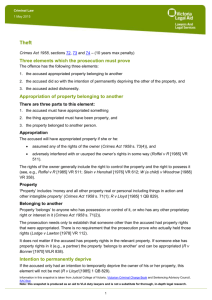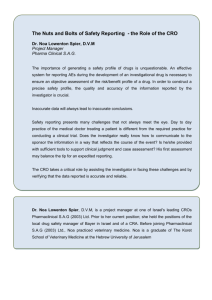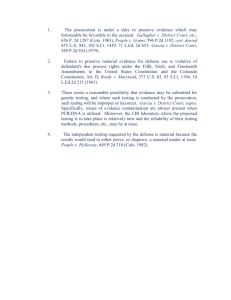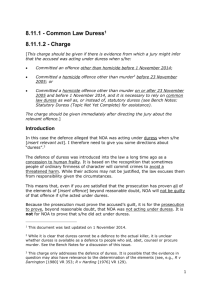Theft - Judicial College of Victoria
advertisement
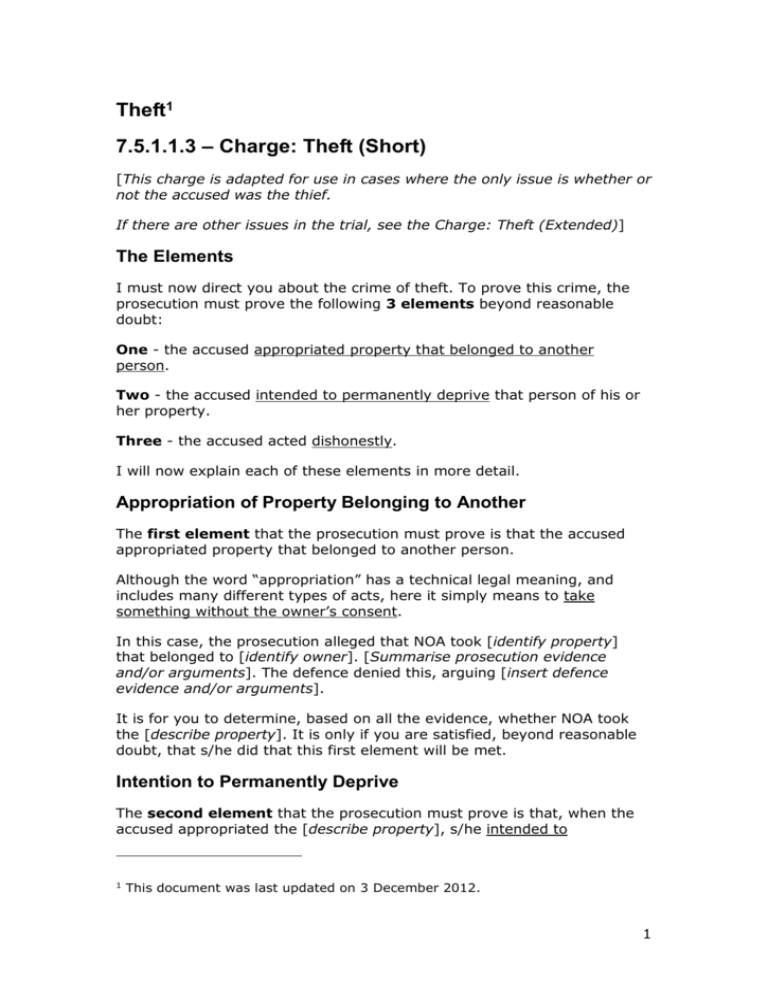
Theft1 7.5.1.1.3 – Charge: Theft (Short) [This charge is adapted for use in cases where the only issue is whether or not the accused was the thief. If there are other issues in the trial, see the Charge: Theft (Extended)] The Elements I must now direct you about the crime of theft. To prove this crime, the prosecution must prove the following 3 elements beyond reasonable doubt: One - the accused appropriated property that belonged to another person. Two - the accused intended to permanently deprive that person of his or her property. Three - the accused acted dishonestly. I will now explain each of these elements in more detail. Appropriation of Property Belonging to Another The first element that the prosecution must prove is that the accused appropriated property that belonged to another person. Although the word “appropriation” has a technical legal meaning, and includes many different types of acts, here it simply means to take something without the owner’s consent. In this case, the prosecution alleged that NOA took [identify property] that belonged to [identify owner]. [Summarise prosecution evidence and/or arguments]. The defence denied this, arguing [insert defence evidence and/or arguments]. It is for you to determine, based on all the evidence, whether NOA took the [describe property]. It is only if you are satisfied, beyond reasonable doubt, that s/he did that this first element will be met. Intention to Permanently Deprive The second element that the prosecution must prove is that, when the accused appropriated the [describe property], s/he intended to 1 This document was last updated on 3 December 2012. 1 permanently deprive the owner of it. That is, s/he intended that the owner would never get it back. It does not matter whether the accused intended to keep, sell, give away, destroy or hide the appropriated property. If his/her intention was that the owner would not get the property back, then s/he will have had the necessary intention. In this case, the prosecution alleged that NOA had such an intention [identify prosecution evidence and/or arguments]. Dishonesty The third element that the prosecution must prove is that at the time of the appropriation, the accused was acting dishonestly. In this context, “dishonesty” does not have its ordinary meaning. It is given a special legal meaning. The basic legal meaning is that people act dishonestly when they appropriate property if they do not believe that they have a legal right to take that property. In this case there is no evidence that the accused had any honest belief in respect of the appropriation. You should therefore have no difficulty finding this element proven. Summary To summarise, before you can find NOA guilty of theft, the prosecution must prove to you, beyond reasonable doubt: One – that NOA appropriated property belonging to NOC; and Two – that NOA intended to permanently deprive NOC of that property; and Three – that NOA appropriated the property dishonestly. If you find that any of these elements have not been proved beyond reasonable doubt, then you must find NOA not guilty of theft. 2
